
Healthcare Supply Chain Management Software (SCM): Types, Solutions



Content
During the Covid-19 pandemic to this day, the pressure on the healthcare system has increased significantly.
Growing competition, restrictions resulting from new government regulations for the healthcare system, high costs, and increased requirements from medical institutions have complicated the interaction of the supply chain entities.
But the key disadvantage of this situation is the impact on the end-user of pharmaceutical products, the patient.
Unlike consumer goods, specific drugs cannot be replaced by available analogs and are required without delay.
That is why the cost of SCM is on average 25% of the healthcare system, which is still above the acceptable threshold for savings of 10%.
Innovative technologies for optimizing supply chain management in healthcare, such as ERP systems, blockchain, remote control of individual stages of the chains, and RFID, will provide affordable services in medical institutions to end-users and reduce costs for all parties.
In a global sense, SCM is the complex of measures to optimize a pharmaceutical product in terms of managing the logistics cycle: from the supply of raw materials to pharmaceutical companies to the delivery of drugs to clinics and pharmacies.
Optimization of all procedures should be based on the integration of planning, automation, and the complex interaction of all participants.
J.Mathew, Joshin John, and Dr. Sushil Kumar analyzed the healthcare market and calculated that the average order fulfillment time is 1,000 to 8,000 hours in developing countries.
At the same time, order processing takes 2 times less time in developed countries. It is due to the consolidation of finished products by 80% from wholesalers who cooperate with local distributors more quickly.
The key advantage of the developed country model is flexible management of warehouse processes and orders thanks to specialized software.
That’s why 69% of leaders of healthcare procurement and technology made SCM a top priority and asset back in 2017.
As Coherent Market Insights reports, the global SCM management industry is projected to grow by 9.3% annually in 2021-2028, and now the technology market in this direction is estimated at $2080.6 million.
This growth is justified by several important market needs related to:
Combining digital solutions in supply chain management in hospitals allows achieving the results necessary for the entire industry, which ensures cost reduction for all market participants.
The complexity of supply chain management can be considered in two aspects:
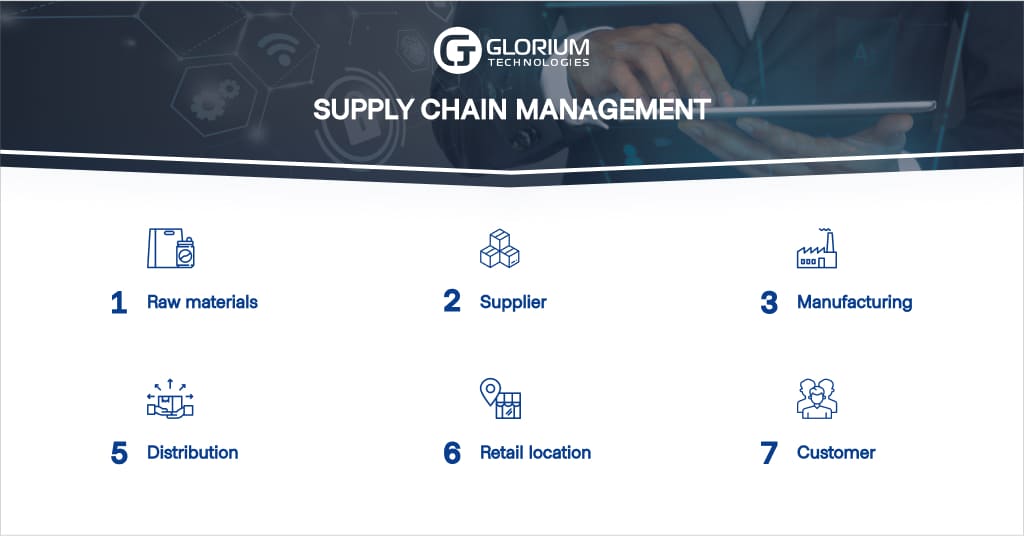
Нospital supply chain software is an online analytical platform or a synergy of several solutions to manage goods in the chain, control their movement, predict the demand of individual market participants, optimize communications between various entities, and improve the delivery of goods to end consumers.
Such software solves two main tasks: it provides transparency of costs to minimize investments in problem stages and satisfies the momentary need of patients for essential drugs when needed.
Depending on who the consumer is and what supply stage requires management optimization, there are several types of IT products.

First of all, such tools must consider the needs of an individual participant or a group of market participants. Depending on the tasks, the solution provider has the possibility to implement the required functionality only, avoiding the integration of unnecessary features.
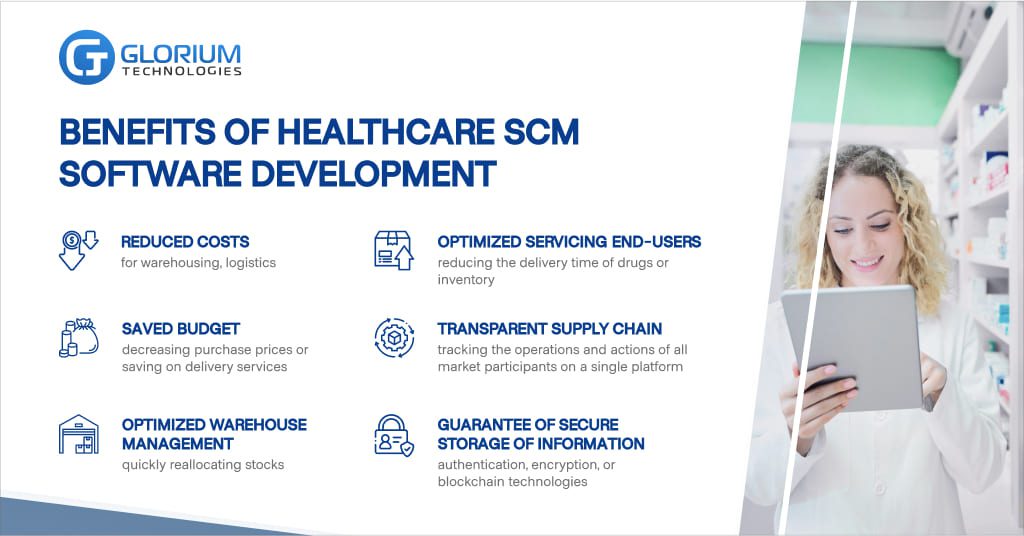
Which solution is suitable for you? Contact GloriumTech, and we will develop a solution to any problem of your company or group of medical institutions!


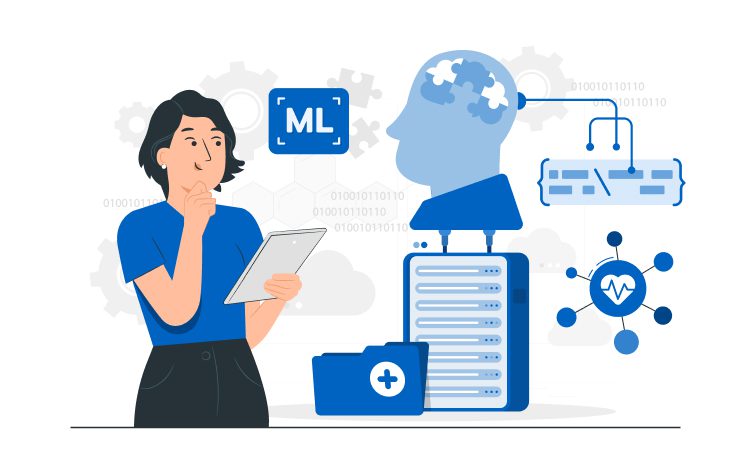
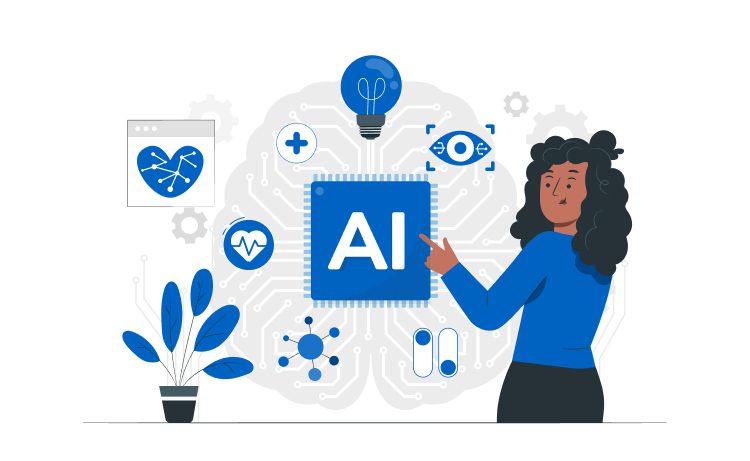
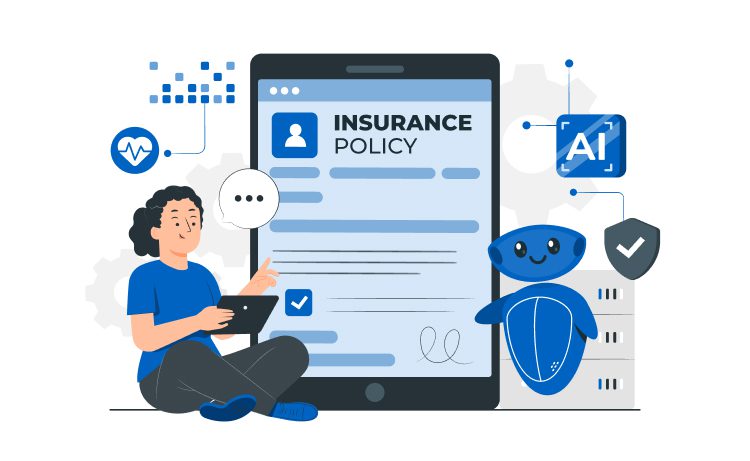
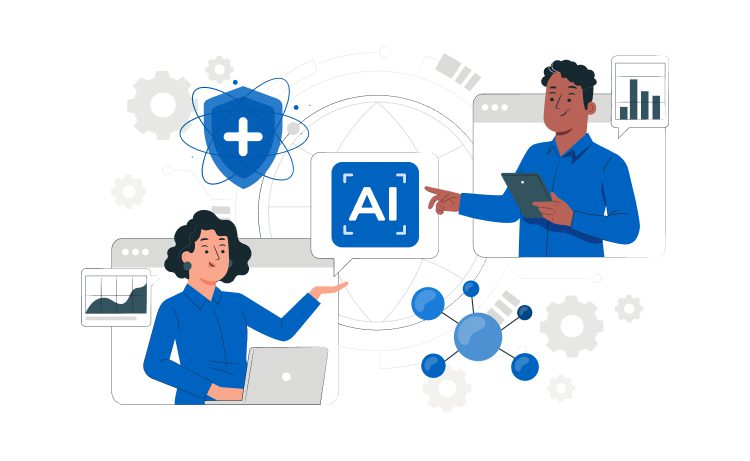


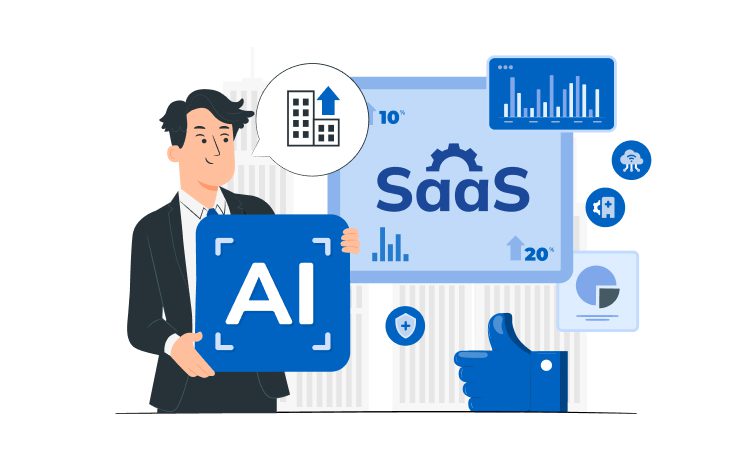
| Cookie | Duration | Description |
|---|---|---|
| cookielawinfo-checkbox-analytics | 11 months | This cookie is set by GDPR Cookie Consent plugin. The cookie is used to store the user consent for the cookies in the category "Analytics". |
| cookielawinfo-checkbox-functional | 11 months | The cookie is set by GDPR cookie consent to record the user consent for the cookies in the category "Functional". |
| cookielawinfo-checkbox-necessary | 11 months | This cookie is set by GDPR Cookie Consent plugin. The cookies is used to store the user consent for the cookies in the category "Necessary". |
| cookielawinfo-checkbox-others | 11 months | This cookie is set by GDPR Cookie Consent plugin. The cookie is used to store the user consent for the cookies in the category "Other. |
| cookielawinfo-checkbox-performance | 11 months | This cookie is set by GDPR Cookie Consent plugin. The cookie is used to store the user consent for the cookies in the category "Performance". |
| viewed_cookie_policy | 11 months | The cookie is set by the GDPR Cookie Consent plugin and is used to store whether or not user has consented to the use of cookies. It does not store any personal data. |